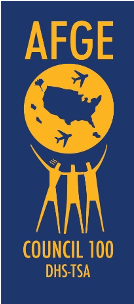Mental Health Awareness Month was first established in 1949 to increase awareness on the importance of mental health and wellness in American lives, as well as celebrating the recovery from mental illness. For the past 20 years the Substance Abuse and Mental Health Services Administration (SAMHSA) has recognized Mental Health Awareness Month every May to increase awareness about the vital role mental health plays in our overall health.
There are many conditions that fall under the guise of mental health with the top 3 being Anxiety disorders, Depression and PTSD. According to the National Institute of Mental Health, 1 in 5 adults live with mental illness. Nearly 1 in 4 active-duty military show signs of a mental health condition. PTSD symptoms can include:
- This is the re-experiencing symptoms of a traumatic event such as disturbing dreams, or a flashback of the event.
- Avoiding people places things that remind of the event such as a Veteran avoiding conversations of their service time, or a sexual trauma victim never returning to the place of the attack even when it has been a lifetime favored place.
- The inability to sleep, or concentrate, or loss of interest in a favorite activity.
Another issue which has reared its ugly head in combating Mental Illness has been the lockdowns during COVID 19. The American Journal of Emergency Medicine has reported an increase in Domestic Violence of 25-33% globally and 8.1% in the United States. What brought this on we ask: The day-in, day-out, depression caused by increased unemployment, stress around elderly and childcare, homeschooling, financial insecurity, along with the surge in alcohol and drug use, and let’s not forget the fears of how long the lockdown would continue. The lockdown provided constant contact between perpetrators and victims that increased the violence itself, yet it also decreased reporting. It separated potential victims from the network of friends, neighbors, teachers, and other individuals who could report and help the victims out of a dangerous situation.
If you or someone you know is struggling with mental illness, don’t be afraid to reach out for help. Learn the symptoms, make the calls but DO SOMETHING.
With Care and Concern,
AFGE Council 100
Crisis Numbers:
- Suicide Crisis Lifeline: Dial 988
- Substance Abuse: 800-662-4357
- Domestic Violence Hotline: 800-799-7233
Hydrick Thomas, President | Mac Johnson, Council Executive Vice President | Johnny Jones, Council Secretary-Treasurer | Thomas Schoregge, Region 1 V.P. | John Hubert, Region 2 V.P. | Janis Casey, Region 3 V.P. | Becky Mancha, Region 4 V.P. | Greg Biel, Region 5 V.P. | Bobby Orozco Jr., Region 6 V.P. | Joe Shuker, Region 7 V.P. | Victor Payes Martinez, Fair Practices Coordinator | Concetta Fialkowski, Women’s Coordinator | Christopher Blessing, AFGE Council 100 Attorney
